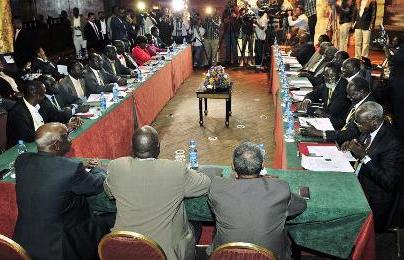Regional conflicting interests complicate resolution of South Sudan crisis
September 9, 2017 (JUBA) – Regional conflict of interests contributes to impede the resolution of the four-year conflict in South Sudan said a United Nations panel in a confidential report disclosed by Reuters on Friday.

IGAD mediators who are from Ethiopia, Kenya and Sudan are supported by a troika including U.S. UK and Norway, three countries that backed the South Sudan independence process, UN and the African Union.
Also, Tanzania and South Africa sought to unify the SPLM factions hoping that such a process, after the end of the war, would lead to the restoration of peace and contribute to bringing stability to the new nation.
However, in a report to the UN Security Council, the U.N. sanctions monitoring panel saw as negative the “competing” role played by all these regional and international mediators and facilitators in the peace process.
“The hostilities in South Sudan continue against a complex backdrop of competing regional and bilateral initiatives to resolve the conflict,” said U.N. sanctions monitors.
The confidential report further pointed to the “conflicting interests compounded by underlying rivalries in the region”.
“The government of South Sudan has sought to exploit this division,” the UN experts further stressed.
In a meeting held on 28 July, the Coordinator of the Panel of Experts on South Sudan briefed the Security Council about the Panel’s work plan for 2017-2018.
During the meeting, the Council encouraged the Panel to continue its mandated reporting and discussed various political initiatives and developments in the region.
Different experts said the involvement of the region in the mediation was not a positive factor to end the conflict as the IGAD countries have conflicting interest, pointing to Uganda which openly militarily and politically supported the government of President Salva Kiir.
The same was said about Khartoum, which has a number of outstanding issues with the new country since the independence and accuses Juba of supporting Sudanese rebel groups.
On Friday, The Associated Press reported that South Sudanese officials and defector rebels accuse Sudan of supplying arms to armed groups that fight Juba since four years. But the rebels who face weapons and ammunition shortage denied the accusations.
(ST)
